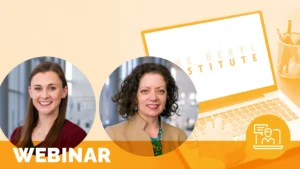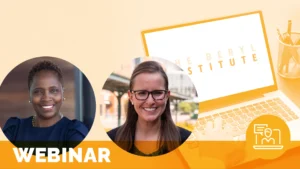Communicating with Compassion: Mind, Body and Spirit
Published January 1, 2010


Leslie Amani, Coordinator of Spiritual Care and Hospice Volunteers, Enloe Medical Center – Chico, California
In this webinar, participants will be able to:
- Apply appropriate and practical active listening techniques for the healthcare environment based on actual case studies.
- Acquire tools to train staff and volunteers using non-verbal & verbal communication techniques that personalize care while maintaining healthy boundaries.
- Differentiate “thoughts” vs. “feelings” words and non- verbal and verbal cues that engage the mind and spirit.
*This resource was originally developed by the Association for Health Care Volunteer Resource Professionals (AHVRP) prior to AHVRP integrating with The Beryl Institute in July 2020. This webinar does not offer Patient Experience Continuing Education Credit (PXE).
Related content
-
Culture & Leadership | Quality & Clinical Excellence | Staff & Provider Engagement
Remediation Strategies to Reduce Shame and Stratify Support for Providers in Patient Experience
Published November 19, 2024

This webinar will review evidence regarding remediation of communication skills in healthcare providers, shame in healthcare, and how the two intersect. The experience at our institution includes two pilot programs designed for providers and entire clinics with suboptimal patient experience scores. We will present stepwise strategies, lessons learned, and qualitative and quantitative data that are
Learn more -
Culture & Leadership
Brand YOU: Aligning Values to Build a Brand of Engagement & Strength
Published October 24, 2025

When Vidant Health rebranded to ECU Health, maintaining patient trust and team engagement was critical. This PXLB explores how ECU Health used patient insights and the Brand YOU program to align employees with the new identity—reinforcing trust, loyalty, and a shared commitment to care.
Learn more -
Culture & Leadership | Innovation & Technology | Staff & Provider Engagement
Human-Centered Leader Rounding: Using Generational Insights and Personalization
Published November 26, 2024

Complimentary – Explore how healthcare leaders can design and adapt their rounding processes to cater to different patient and employee generations, combining generational data with a personalized approach that is specific to the individual. The discussion will focus on personalized care, communication preferences, and bridging generational gaps in expectations through a human-centric approach that prioritizes
Learn more
